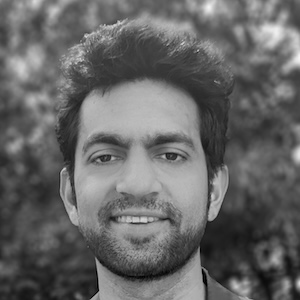 Krishnanunni Jithendra Kumar
Krishnanunni Jithendra Kumar
Krishna is a PlanAdapt Fellow based in Darmstadt, Germany; originating from India.
He is a passionate urban researcher with a background in architecture, dedicated to climate-resilient, inclusive, and sustainable urban growth rooted in socio-ecological justice.
Krishna began his career as a landscape design intern at the Auroville Botanical Garden in Tamil Nadu, India, contributing to research, graphic design, and landscape design. He then served as an architectural intern at Inspiration Collective in Kerala, India, focusing on the research and development of prefabricated bamboo structures for financial and community spaces in rural areas.
After earning his architecture degree, Krishna joined Arth Design Build in Hyderabad, India, as a Junior Architect. There, he developed concepts and detailed designs for restaurants, office spaces, and residences while leading project management efforts and coordinating with clients, project managers, and contractors to ensure seamless project execution. Pursuing his interest in sustainable construction, he moved to Unitary Design Studio in Auroville, India, where he engaged in research, design, and project management of bioclimatic projects using earth-based construction techniques across various Indian climates.
Following the 2018 Kerala floods, Krishna returned to his hometown of Kochi to rebuild his parents’ home. He rejoined Inspiration Collective as a consultant architect, integrating bioclimatic design expertise into projects and contributing to research on node-based development models to enhance climate resilience in Kerala’s low-lying regions, which he presented to the state ministry.
Most recently, Krishna worked at the Programme for Energy Efficiency in Buildings (PEEB) at Gesellschaft für Internationale Zusammenarbeit (GIZ) in Bonn, Germany. In this role, he supported program implementation, monitoring, meetings and events, and communication and PR. He also co-authored a study on Nationally Determined Contributions (NDCs) for Buildings, involving mapping and analysing building targets within NDCs, revising research tools, and conducting an extensive literature review on the impact of NDCs on buildings.
Krishna is strongly interested in community-led climate adaptation, urban climate action, nature-based solutions, humanitarian shelter initiatives, and sustainable, low-tech construction. His focus extends to critical urban research, interdisciplinary and participatory methodologies, stakeholder engagement, socio-spatial analysis, advocacy, and policy development.
During his master’s program, Krishna participated in a socio-spatial research project titled “Responding to Climate Emergencies”, where he presented safe shelter designs for chemical hazards and retrofit solutions for the General Hospital of Catalunya, Sant Cugat, to the Civil Protection Ministry of Home Affairs, Catalunya. Additionally, he was involved in a participatory research project aimed at integrating green infrastructure and social analysis to mitigate climate risk and enhance food sovereignty for the La Lucha de los Pobres neighbourhood in Quito, Ecuador. This project was conducted in collaboration with the Latin American Social Sciences Institute (FLACSO) and the University of Montreal.
Krishna completed the Mundus Urbano post-graduate program, earning a double degree in International Cooperation in Urban Development from Technische Universität Darmstadt, Germany, and Sustainable Emergency Architecture from UIC Barcelona (International University of Catalonia), Spain. His master’s thesis investigated the efficacy and stakeholder participation in Eco-DRR strategies in the Western Ghats mountain range, Kerala, India.
He also holds a Bachelor’s degree in Architecture from the Indian Institute of Technology, Kharagpur, India. His bachelor thesis focused on utilising bamboo and earth-based construction to enhance community engagement through an eco-resort project in Wayanad, Kerala, India.
For more info, see Krishna’s LinkedIn page.
